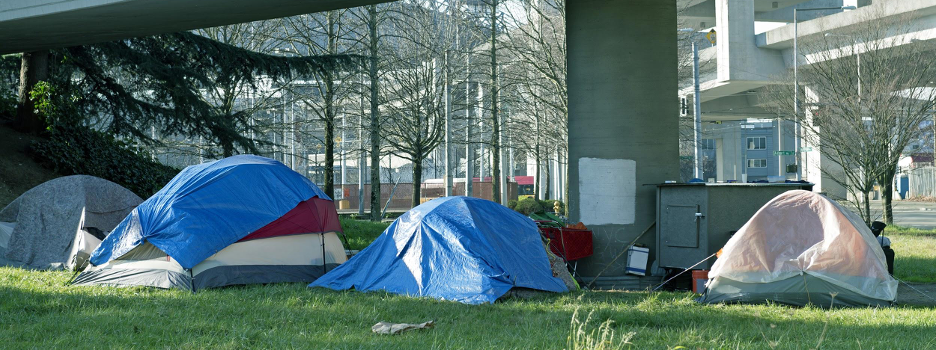By the end of March 2020, it was clear COVID-19 was spreading rapidly throughout the country. People experiencing homelessness, who tend to have higher rates of chronic illness, were at higher risk of contracting serious illnesses due to COVID-19 as many live in high-capacity, large barrack-style shelters or outside without regular access to sanitation facilities like hand-washing stations.
Applying more than a decade of experience working to prevent and end homelessness, our team coordinated a national response network to aggressively put in place life-saving measures to protect people experiencing homelessness during COVID-19. For the U.S. Department of Housing and Urban Development (HUD) Office of Special Needs Assistance Programs (SNAPS), we conducted outreach to large metropolitan areas, cities with high numbers of people experiencing homelessness, and areas with high COVID-19 case counts.
Each community was paired with a dedicated expert to develop strategies to reduce and control COVID-19 outbreaks, facilitate connections with public health organizations, and assist in developing funding mechanisms to acquire new shelter options that would provide greater social distancing. Working with non-profit organizations, elected officials, and federal agencies, communities quickly worked to secure and repurpose underutilized hotels and college dorms, and realign existing shelter spaces to provide for greater social distancing for people experiencing homelessness.
Working with the Centers for Disease Control and Prevention (CDC) and National Health Care for the Homeless Council (NHCHC) partners, we created conduits for new information, data, and ways to prevent, mitigate, and manage the outbreak among people experiencing homelessness. The vulnerability that exists in this population could exacerbate the spread of COVID-19 in many communities around the country if not properly addressed.
To increase access to time-sensitive resources on housing models, community plans, and public health guidance, we quickly stood up a central repository of Disaster Response Rehousing resources and maintained community-level data regarding local infection control strategies, ensuring each community received actionable steps, connection to resources, and milestones to develop safe sheltering options.
Our team continues to develop tools and products to support the evolution of community responses to COVID-19 for homeless persons throughout the country. The compilation of this work resulted in life-saving measures implemented in many communities throughout the country.


Your Comment
Leave a Reply Now